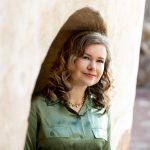Our Auto / Bio / Fiction series series of talks and seminars continues this month with Hywel Dix and Hanna Meretoja.
17 November 2022, 5.30pm UTC (online)
Hywel Dix, Autofiction and Cultural Memory
 This paper explores how autofiction affords writers from marginalised positions opportunities to re-write dominant narratives about the societies in which they work and thereby to broaden the cultural memory of those societies.
This paper explores how autofiction affords writers from marginalised positions opportunities to re-write dominant narratives about the societies in which they work and thereby to broaden the cultural memory of those societies.
Developing a theoretical connection between autofiction and cultural memory is challenging because autofiction appears to be a mainly individualistic form whereas cultural memory is defined by its shift from the individual to the collective domain. The main argument to be presented is that there exist various forms of autofiction in which, concurrent with narrating aspects of the life of the author, certain texts also position authors as typical members of a given community, thereby enacting the shift from individual to collective narration that is characteristic of cultural memory. By narrating their own stories such writers are also involved in narrating the wider cultural struggles in which they have played a part, telling their life stories in relation to the wider stories and histories of the collective.
Overall the paper argues that autofiction is a form in which Western concepts of individual authorship and ownership of stories can be challenged by a variety of non-Western practices that treat storytelling, memory and history as aspects of a common inheritance. Thus the assumption that the self-narration of autofiction is solely concerned with the individual can be replaced by the assumption of the self as always already embedded in wider relationships and circulating discourses including those of literature, history and ideology. This substitution once made enables the barrier to an autofictional practice of cultural memory to be overcome.
Hanna Meretoja, Metanarrative Life-Writing: Intersections of Life and Narrative in Autofiction and Biofiction

In this talk, I will argue that an important interconnecting strand in contemporary autofiction and biofiction concerns reflection on the relationship between life and narrative.
Much of contemporary autofiction and biofiction explicitly thematize this issue and the role of cultural narrative models in practices of narrating lives. I call such fiction metanarrative autofiction and metanarrative biofiction and conceptualise such metanarrative life-writing as a form of self-reflexive writing that makes narrative its theme so that it reflects not only on the process of its own narration but also on the roles of cultural narrative models in processes of making sense of lives. Such life-writing often also addresses how ways of narrating lives are socially, culturally, and historically conditioned and shows how a life takes shape in relation to a space of possibility. In other words, metanarrative life-writing can give a sense of what it is like to live in a certain cultural and historical world as a space of possibility in which certain thoughts, affects and actions are possible and others impossible or unlikely.
I suggest that one important affordance of metanarrative life-writing is precisely to imagine the actual in relation to the possible and to thereby cultivate our “sense of the possible”. I will use as an example of metanarrative autofiction Annie Ernaux’s Les Années (The Years) and as an example of metanarrative biofiction Julia Franck’s Die Mittagsfrau (The Blind Side of the Heart).
Attendance is free but booking is required to receive a link to attend. (The Zoom link will be sent shortly before the event itself: check the email with which you registered!) BOOKING IS NOW CLOSED.
Watch the video of the seminar:
The speakers
Hywel Dix is Professor of English at Bournemouth University, UK. He has published extensively on the relationship between literature, culture and political change in contemporary Britain, most notably in Postmodern Fiction and the Break-Up of Britain (2010), After Raymond Williams: Cultural Materialism and the Break-Up of Britain (Second Edition, 2013) and Multicultural Narratives: Traces and Perspectives, co-edited with Mustafa Kirca (2018). His wider research interests include modern and contemporary literature, critical cultural theory, authorial careers and autofiction. His monograph about literary careers entitled The Late-Career Novelist was published in 2017 and an edited collection of essays on Autofiction in English was published in 2018. He has recently completed a study entitled Compatriots or Competitors? Welsh, Scottish, English and Northern Irish Writing and Brexit in Comparative Contexts.
